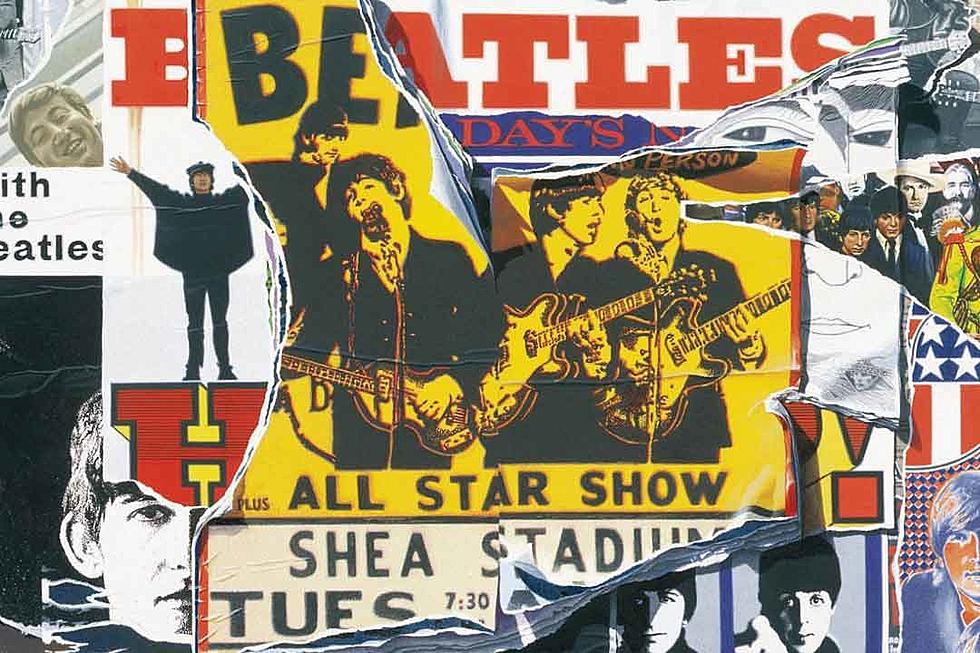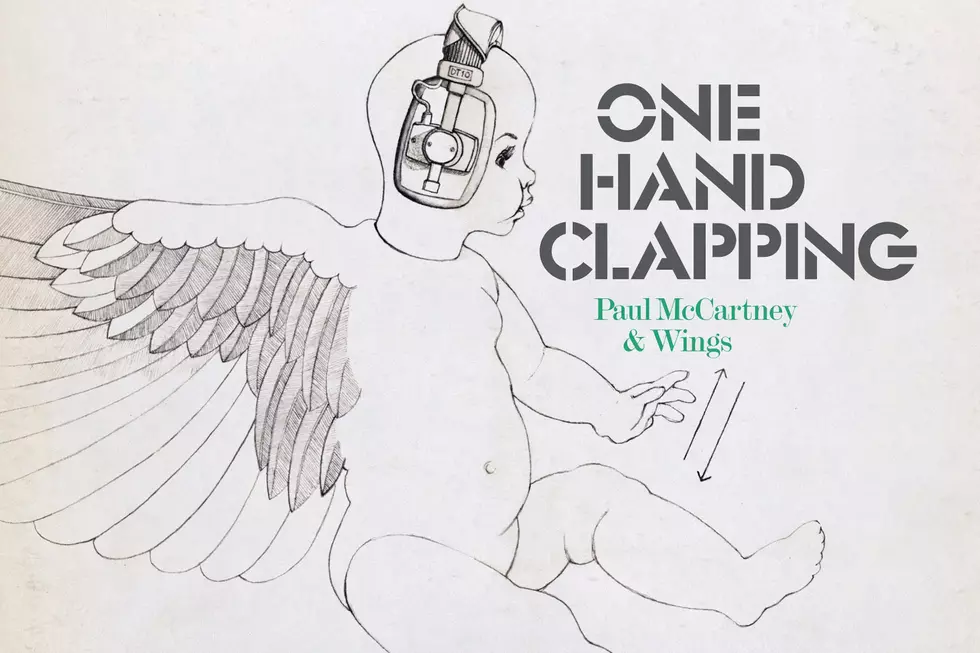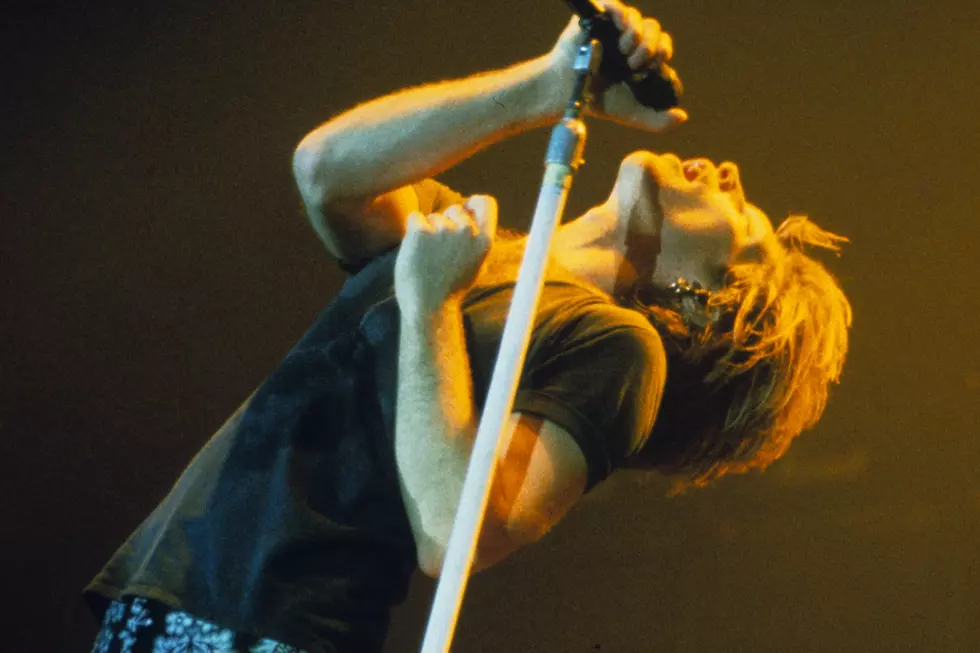
12 Tracks Worth Keeping From the Beatles’ ‘Anthology’ Series
When the Beatles released the first of the three double-disc Anthology sets in the mid-'90s, the idea was to beat the bootleggers at their own game. More than any other artist – more than Bob Dylan, more than Pink Floyd, more than Bruce Springsteen – the Beatles' outtakes, session scraps and tossed-off fragments were hoarded and cherished by collectors.
But unlike so many of those other artists, there wasn't, frankly, too much the Beatles left unreleased. Most everything they recorded in the studio was collected on the 12 albums and the singles-sweeping Past Masters set that had been released over the years. The handful of quality leftovers had pretty much been bootlegged to death.
Then came a meeting, on Jan. 19, 1994, between Paul McCartney and John Lennon's widow, Yoko Ono, on the occasion of Lennon's posthumous induction into the Rock & Roll Hall of Fame. After McCartney presented the award, which Ono accepted, they later discussed the possibility of working on some unfinished Lennon solo songs for inclusion in the Anthology series.
With that, Anthology suddenly posed itself as more than just a vault-clearing project (like Dylan's Bootleg Series). By chronologically lining up the band's earliest recordings (a cover of Buddy Holly's "That'll Be the Day" from 1958 when they were still known as the Quarrymen) to the last song they recorded together (fittingly, a remix of "The End") to these newly completed demos, the three volumes tell the story of the world's biggest pop group – the rise, the fall and everything in between.
They collected more than 150 tracks. Some are fragments, some are mere dialogue. And some are tinny live versions where you can hardly make out the band from all the screaming girls in the audience. But the best of them reveal a side of the group's history that was left undocumented, at least officially, for more than a quarter-century.
While there are many alternate versions of classic songs scattered throughout the six discs (and many that are worth savoring), we think the 12 tracks worth keeping from the Beatles' Anthology series are the ones that were entirely left off their respective albums for one reason or another. We're not saying all of them deserve a place on those LPs, but we're glad they eventually found a home.
"Like Dreamers Do"
From: 'Anthology 1'One of the first songs credited to John Lennon and Paul McCartney (but actually written entirely by the latter), "Like Dreamers Do" was part of the group's Decca Records audition in 1962. Famously, the label passed on the Beatles, leaving the song unreleased for more than 30 years. It's not great (even McCartney has admitted it isn't too good), but it's a signpost of things to come in the duo's songwriting partnership and a crucial early step on the band's way to fame.
"One After 909"
From: 'Anthology 1'Another early original by Lennon and McCartney, "One After 909" was first attempted by the Beatles during the same sessions that produced the "From Me to You" single in 1963. The band later revisited the song during its famous rooftop concert in January 1969 and eventually released that version on the following year's Let It Be. The scrappy early take from 1963 reveals just how simultaneously loose and tight the Beatles could be during their formative years.
"You Know What to Do"
From: 'Anthology 1'The first song George Harrison wrote and sang with the Beatles was "Don't Bother Me," which was included on 1963's With the Beatles. The next time he showed up as a writer and singer was two years later on Help!'s "I Need You." In between, he laid down another song, "You Don't Know What to Do," as a demo during the A Hard Day's Night sessions. But Ringo Starr wasn't around to play on it, so the song sat in the vaults until it was resurrected more than 30 years later for the first Anthology.
"Leave My Kitten Alone"
From: 'Anthology 1'Beatles for Sale, from 1964, already has a lot of cover songs on it, which might explain why this one – Little Willie John wrote and recorded it in 1959 – was left off. It's a great rocker and would have made a better choice than a couple of the tracks that ended up on Beatles for Sale. A longtime favorite on Beatles bootleg albums, "Leave My Kitten Alone" officially entered the group's legacy when it was released on Anthology 1 in 1995.
"If You've Got Trouble"
From: 'Anthology 2'When Beatles albums were running too long, it was usually George Harrison's songs that were left off. In the case of Help!, it was the Ringo Starr-sung "If You've Got Trouble," written by Lennon and McCartney. Nobody really liked it, though, and "Act Naturally," a cover of Buck Owens' country hit, ended up as the drummer's showcase instead. Seeing as how the Beatles were creatively accelerating at this point, it's little surprise that the relatively simple song didn't make it on record until the second Anthology.
"That Means a Lot"
From: 'Anthology 2'By 1965, the Beatles had pretty much moved on from the basic melodic and even lyrical structures of "That Means a Lot," which they recorded during the Help! sessions. So, like the similarly shelved "If You've Got Trouble," it's not exactly hard to hear why it didn't make the album. Paul McCartney wrote the bulk of the song and ended up passing it along to singer P.J. Proby, who had a Top 30 hit with it in the U.K. that same year. Still, an interesting side note from a period of transition.
"12-Bar Original"
From: 'Anthology 2'The Beatles released only one instrumental during their time together – "Flying" from Magical Mystery Tour. "12-Bar Original," a basic blues instrumental credited (like "Flying," coincidentally) to all four members, was recorded during the Rubber Soul sessions and no doubt would have sounded way out of place had it made it on the album. Producer George Martin plays harmonium on the song, pegging it a bit to this new era. Otherwise, it's a throwaway number most notable for clinging to the past as the group propelled into the future.
"Not Guilty"
From: 'Anthology 3'George Harrison already had four songs on the White Album, the most he ever had on a Beatles record. Making room for one more most likely wasn't going to happen. But they probably should have reconsidered "Not Guilty," one of the group's best shelved songs that had to wait until the Anthology series for an official release. It took the band more than 100 takes to get it right, and even then its completion proved problematic. The version included on Anthology 3 has also divided fans, since a key guitar solo was taken out prior to its official release.
"What's the New Mary Jane"
From: 'Anthology 3'"What's the New Mary Jane" is pretty much a goof recorded during the White Album sessions by John Lennon (who also wrote the song), George Harrison, Yoko Ono and Beatles road manager Mal Evans. Like "You Know My Name (Look Up the Number)," which was released as the B-side to the "Let It Be" single, there's not much of an actual song to "Mary Jane." But the unstructured approach to the track signaled Lennon and Ono's interest in the experimental sound sculptures that would dominate their late-'60s LPs together (as well as the White Album's "Revolution 9").
"Medley: Rip It Up/Shake, Rattle and Roll/Blue Suede Shoes"
From: 'Anthology 3'After the fractious White Album sessions, the Beatles had hoped to get back to their roots of playing together in one room without too much outside interference. But the decision to have a film crew document the process didn't help things, and the recordings from these dates ended up sitting on a shelf for a year before they were finally released on the Let It Be album. In addition to the new songs the band worked on were a handful of covers from rock's early days, including a medley featuring Little Richard's "Rip It Up," Joe Turner's "Shake, Rattle and Roll" and Carl Perkins' "Blue Suede Shoes." Their unbridled joy at revisiting the past practically jumps from the grooves.
"All Things Must Pass"
From: 'Anthology 3'George Harrison recorded a demo version of the song that became the title track to his first real solo album during the 1969 sessions that would make up the Let It Be LP. But like many of Harrison's Beatles songs from the era (and one of the reasons the group was splintering beyond repair at this point), "All Things Must Pass" didn't make the final cut. Too bad: His stripped-down take offers an intimacy missing from the full-band solo version that was released in 1970.
"Mailman, Bring Me No More Blues"
From: 'Anthology 3'Like "Medley: Rip It Up/Shake, Rattle and Roll/Blue Suede Shoes," "Mailman, Bring Me No More Blues" was a '50s tribute recorded during the loose 1969 sessions for the album that would eventually become Let It Be. By the time the record was released more than a year later, producer Phil Spector added choir, orchestra and other adornments (many of them without the Beatles' knowledge) to the stripped-down songs, making the group's final album seem more like a eulogy than a celebration. This outtake of an obscure Buddy Holly number shows just how much fun the Beatles could still have playing together when no one else was around.
More From Ultimate Classic Rock









